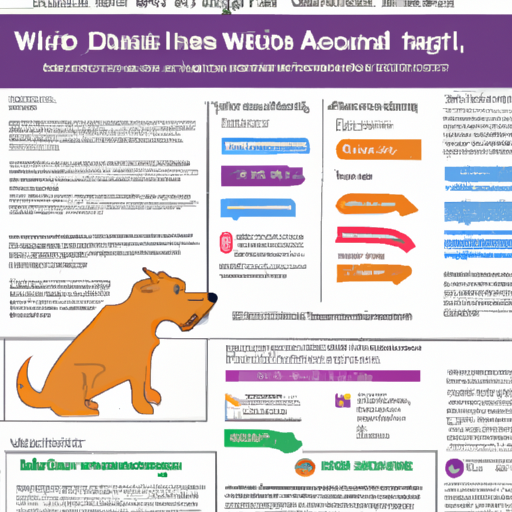As a caring pet owner, you may have experienced the distressing sight of your dog throwing up. Before diving into panic mode, it’s essential to understand that vomiting in dogs can be due to various reasons, ranging from simple dietary indiscretion to more serious health issues. This comprehensive guide will help you understand the reasons behind your pooch’s upset stomach and what to do when it happens.
1. Understanding Canine Vomiting
Vomiting is a physical process involving the forceful ejection of stomach contents through the mouth. In dogs, this is a common occurrence and can be triggered by numerous factors.
Just as you would feel nausea before throwing up, dogs also experience a similar sensation. They may exhibit signs such as drooling, licking their lips, and swallowing excessively. Recognizing these pre-vomit behaviors can help you prepare for the inevitable and possibly even prevent a mess.
2. Common Causes of Vomiting in Dogs
Vomiting in dogs can be caused by various factors. Here are some common reasons:
- Dietary indiscretion: Dogs are curious creatures. They may eat something they shouldn’t, like spoiled food or non-food items, leading to an upset stomach.
- Change in diet: A sudden change in your dog’s diet can cause their stomach to rebel.
- Overeating or eating too fast: Just like in humans, overeating or eating too quickly can result in vomiting.
- Motion sickness: Some dogs may experience motion sickness during car rides.
- Medical conditions: Certain underlying health issues, such as pancreatitis, kidney disease, or liver problems, can cause vomiting.
3. When to Seek Veterinary Care
While occasional vomiting is not usually a cause for concern, persistent or severe vomiting can indicate a serious health issue. Here are some warning signs that your dog needs immediate veterinary attention:
- Vomiting multiple times in a row
- Vomiting blood
- Lethargy or collapse
- Other symptoms like loss of appetite, diarrhea, or significant weight loss
4. Treating a Vomiting Dog at Home
If your dog’s vomiting is not severe and they are otherwise healthy, you can try some home remedies:
- Fasting: Allow your dog’s stomach to rest by not feeding them for 12-24 hours.
- Hydration: Ensure your dog stays hydrated. Give them small amounts of water at regular intervals.
- Bland diet: Once your dog has stopped vomiting, offer them a bland diet like boiled chicken and rice.
- Slow feeding: Use a slow-feeder bowl to prevent your dog from eating too quickly.
5. Preventing Vomiting in Dogs
Prevention is always better than cure. Here are some tips to prevent your dog from throwing up:
- Regular vet check-ups
- Avoid sudden changes in diet
- Discourage fast eating
- Keep an eye on what your dog eats
Frequently Asked Questions (FAQs)
Q1: Should I take my dog to the vet if they throw up once?
A: If your dog vomits once but is otherwise acting fine, you can monitor them at home. However, if vomiting persists or they show other signs of illness, seek veterinary care immediately.
Q2: Can I give my dog Pepto-Bismol for vomiting?
A: While Pepto-Bismol can be safe for some dogs, it’s always best to consult with your vet before giving your pet any over-the-counter medication.
Q3: Can food allergies cause vomiting in dogs?
A: Yes, food allergies can cause an array of symptoms in dogs, including vomiting. If you suspect a food allergy, consult with your vet about an elimination diet to identify the allergen.
Q4: How long does a stomach bug last in dogs?
A: Most cases of gastroenteritis in dogs resolve within a few days to a week. However, severe or prolonged symptoms warrant a visit to the vet.
Remember, you are your dog’s best advocate. If you notice something isn’t right, trust your instincts and seek professional help.



